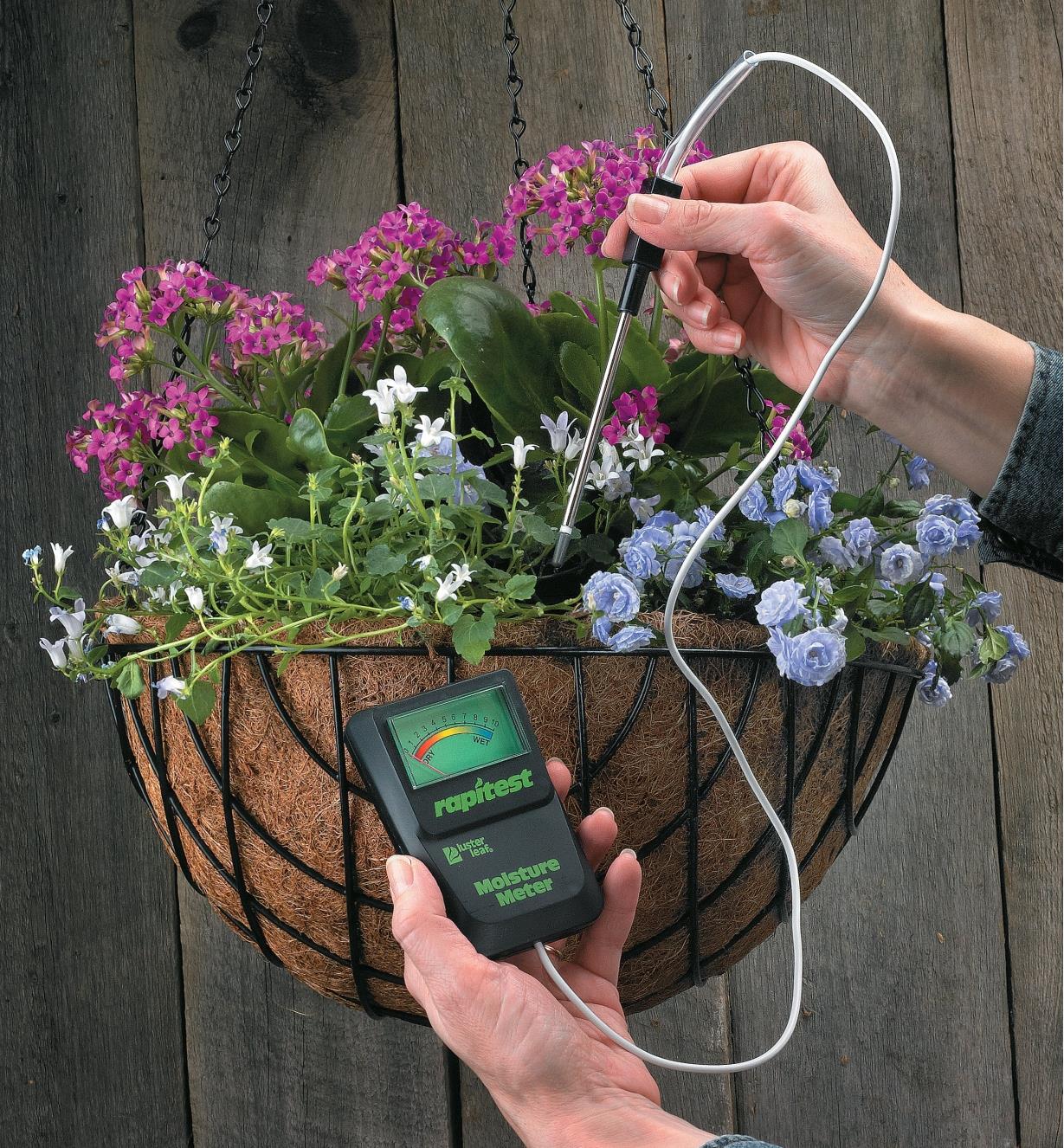Why Every Home Owner Needs a Moisture Meter: Trick Benefits and Features
Wiki Article
The Ultimate Guide to Moisture Meters: A Comprehensive Summary and Exactly How They Can Save You Money
In the world of structure upkeep, construction, and numerous industries, the value of accurately determining dampness levels can not be overstated. Moisture meters offer as important tools in spotting and keeping track of moisture content in products, assisting in preventing pricey damages and making sure the top quality of products. Comprehending the subtleties of various types of moisture meters, their applications, and the prospective cost-saving advantages they use can be a game-changer for services and professionals alike. Discovering how these devices can not only improve procedures yet likewise add to monetary savings is a journey worth starting.Kinds Of Moisture Meters
Numerous kinds of moisture meters are offered for various applications in various industries. One usual type is the pin-type moisture meter, which measures the electric resistance in between two pins put right into a product. This type is appropriate for timber, drywall, and various other building products. Pinless moisture meters, on the various other hand, usage electro-magnetic sensor plates to check a bigger location without causing damage to the product's surface area. Moisture Meter. These meters are perfect for quickly assessing wetness degrees in big locations such as floors and walls.
Infrared wetness meters gauge the thermal buildings of a product to establish its moisture material non-invasively, making them beneficial for applications where pin or pinless meters may not be ideal. Recognizing the different kinds of moisture meters available can help markets pick the most appropriate device for their particular dampness dimension requirements.

Advantages of Utilizing Dampness Meters
Wetness meters provide indispensable benefits in accurately evaluating and checking moisture degrees in diverse materials and atmospheres. One of the key benefits of using wetness meters is the avoidance of prospective damage triggered by excess dampness.
In addition, utilizing dampness meters can result in boosted power performance. By recognizing locations with high moisture levels, such as leaks or poor insulation, adjustments can be made to improve power preservation and lower energy prices. In farming settings, wetness meters play a vital function in maximizing crop returns by enabling farmers to keep track of dirt dampness degrees and make notified irrigation decisions. Generally, the benefits of using dampness meters cover throughout various industries, giving economical solutions and promoting better high quality control methods.
Exactly How to Select the Right Wetness Meter
When choosing a wetness meter, it's crucial to make sure that the meter is appropriate for the particular product you will certainly be screening. Different products have varying electrical residential or commercial properties that can affect moisture readings, so more information selecting a meter designed for your product is important for accurate outcomes. By meticulously evaluating these aspects, you can choose a wetness meter that meets your demands and provides exact moisture measurements for your tasks.Correct Techniques for Moisture Meter Use

Expense Savings Via Wetness Meter Applications
Exactly how can the calculated use of dampness meters lead to considerable price savings across different markets? In the farming industry, moisture meters aid in determining the optimum time for gathering crops, stopping over-drying or excess dampness that can affect the last item's quality.
Similarly, in building, moisture meters help prevent costly damages by finding dampness degrees in building materials, such as wood or concrete, which can lead to architectural concerns otherwise addressed immediately. By determining trouble locations at an early stage, professionals can take corrective procedures to avoid comprehensive repair work or substitutes, eventually conserving time and money.
Moreover, in the food handling market, wetness meters are crucial for keeping track of product top quality and guaranteeing compliance with safety guidelines. By precisely determining dampness web content in food, makers can prevent putridity, maintain freshness, and reduce waste, leading to significant expense financial savings. In general, the strategic application of dampness meters is a beneficial financial investment that can bring about substantial price decreases and improved performance throughout different markets.
Conclusion
In final thought, moisture meters are useful devices for gauging and spotting this contact form dampness degrees in different materials. By using the best dampness meter and complying with appropriate techniques, individuals can properly protect against expensive problems created by excess wetness.Moisture meters serve as vital tools in discovering and checking moisture content in products, helping in preventing pricey damages and guaranteeing the quality of items. Infrared moisture meters determine the thermal residential or commercial properties of a material to determine its dampness web content non-invasively, making them beneficial for applications where pin or pinless meters may not be appropriate.Moisture meters use very useful benefits in precisely checking and evaluating moisture levels in diverse materials and atmospheres. In agricultural settings, moisture meters play an important function in maximizing plant yields by enabling farmers to monitor dirt dampness levels and make notified irrigation choices.In conclusion, wetness meters are important devices for measuring and finding wetness levels in numerous products.
Report this wiki page